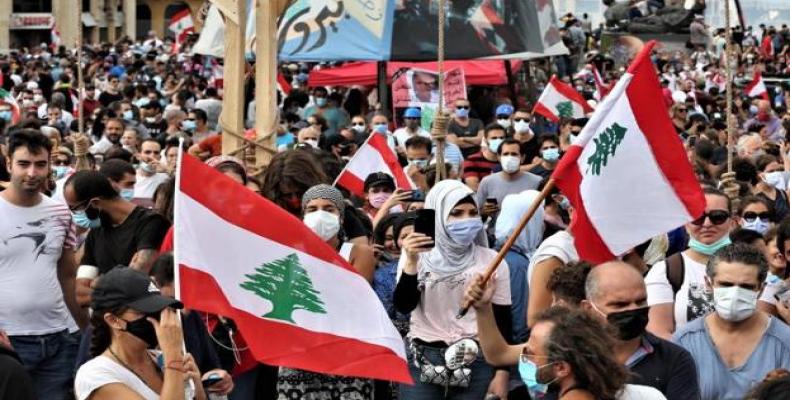The violent explosions that swept the port of Beirut, followed by the intense protests of those sick of corruption and poor governance, led to the mass resignation of Lebanese government officials. Many now wonder what will happen next in that country.
It is noteworthy that the former prime minister, Hassan Diab, in his resignation message, recognized that "the mechanisms of corruption are greater than the State" -- a curious way of accepting that real power lies somewhere else.
Lebanon is a small nation, with 6.8 million inhabitants and 10,200 square kilometers of land area, and its neighboring countries are very complex since it borders Syria to the north and east and Israel to the south.
After a long history of occupation, the Country of Cedars achieved a fragile independence from the French protectorate in 1944 and experienced a short period of progress until it collapsed with the civil war from 1975 to 1990. Lebanon was then left in political and religious chaos.
In fact, almost everything in Lebanon has a strong faith-based component and this is reflected in the composition of the government, divided between Shiites, Sunnis and Christians, among other religious beliefs.
The former prime minister, who had the support of the Hezbullah movement, handed over his position to President Michel Aoun, the leader of a major Christian faction that is supported by the United States and France.
Some analysts believe that Enmanuel Macron's hasty visit a few hours after the explosion in Beirut was a strategy to stoke protests against the government, accelerate the fall of Diab and somehow weaken Hezbullah's influence on an executive future.
It’s clear that Lebanon occupies a geo-strategic position for the West, with more than 400 kilometers of border with Syria, a country that’s been targeted by all of Washington's allies, in order to consolidate Israel’s power over the Middle East.
In addition, everyone knows that Hezbullah has an important alliance with Iran, so attacking that movement also means attacking Tehran, another obstacle in United States' plans to take over the whole region.
Thus, the appointment of a new government in Lebanon is something that goes far beyond the needs and aspirations of the people, entangled in the hegemonic interests of American and European powers.
Or, put more bluntly: the new government, instead of emerging from the elections, will be the result of dark negotiations with the White House, the Elysee Palace and other imperialist interests.


